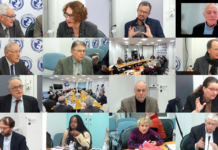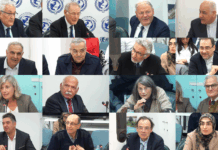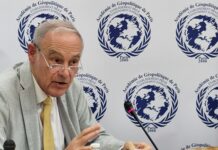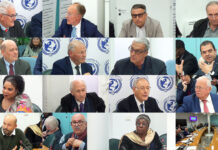Téléchargez l’article au format PDF
Georges Jure VUJIC
Résumé : Alors que notre modernité tardive consacrerait inéluctablement le « désenchantement du monde » et « la sortie du religieux » au nom d’une vision sécularisée et techno-centrée du monde, nous assistons paradoxalement à un phénomène global de prolifération des radicalités religieuses qui, du Moyen-Orient et en passant par l’Inde, la Birmanie, l’Afrique et le continent américain, s’expriment sous des formes violentes à travers des religions politiques qui exploitent le fait religieux comme facteur identitaire. En effet, le sacré et le religieux, même s’ils sont souvent assimilés, ne se confondent pas et participent chacun à la construction des « représentations géopolitiques » c’est-à-dire à la perception que les communautés ont d’elles-mêmes et de l’autre. Dans le domaine géopolitique, cette « territorialisation du religieux » explique comment la culture religieuse et spirituelle fait partie intégrante des identités nationales. Face à l’expansion d’une géopolitique confessionnalisée, le nouveau défi du système international – souvent dépendant de l’héritage d’une vision séculariste des relations internationales – consisterait en une approche plus équilibrée renforçant davantage la reconnaissance et la protection du « sacré » et des lieux saints sur un pied d’égalité, tout en supposant une réelle volonté de condamner toutes les religions politiques, quelles qu’elles soient, qui instrumentalisent le fait religieux à des fins géopolitiques.
Mots-clefs : Religion, Géopolitique, Identité, Lieux saints, Séculier, Relations internationales.
THE ROLE OF THE RELIGIOUS AND THE SACRED IN THE NEW GEOPOLITICAL AND IDENTITY RECOMPOSITIONS : A MAJOR CHALLENGE FOR THE BALANCE OF THE INTERNATIONAL SYSTEM
Abstract: While our late modernity would inevitably consecrate the “disenchantment of the world” and “the exit from religion” in the name of a secularized and technocentric vision of the world, we are paradoxically witnessing a global phenomenon of the proliferation of religious radicalism which, from the Middle East to India, Burma, Africa and the American continent, are expressed in violent forms through political religions which exploit the religious fact as an identity factor. Indeed, the sacred and the religious, even if they are often assimilated, do not merge and both participate in the construction of the “geopolitical representations”, that is to say in the perception that the communities have of themselves and others. In the geopolitical domain, this “territorialization of the religious” explains how religious and spiritual culture is an integral part of national identities. Faced with the expansion of confessionalized geopolitics, the new challenge of the international system – often dependent on the legacy of a secularist vision of international relations – would consist of a more balanced approach that further strengthens the recognition and protection of the “sacred” and holy places on an equal footing, while assuming a real desire to condemn all political religions, whatever they may be, which exploit the religious fact for geopolitical purposes.
Keywords: Religion, Geopolitics, Identity, Holy places, Secular, International relations.








